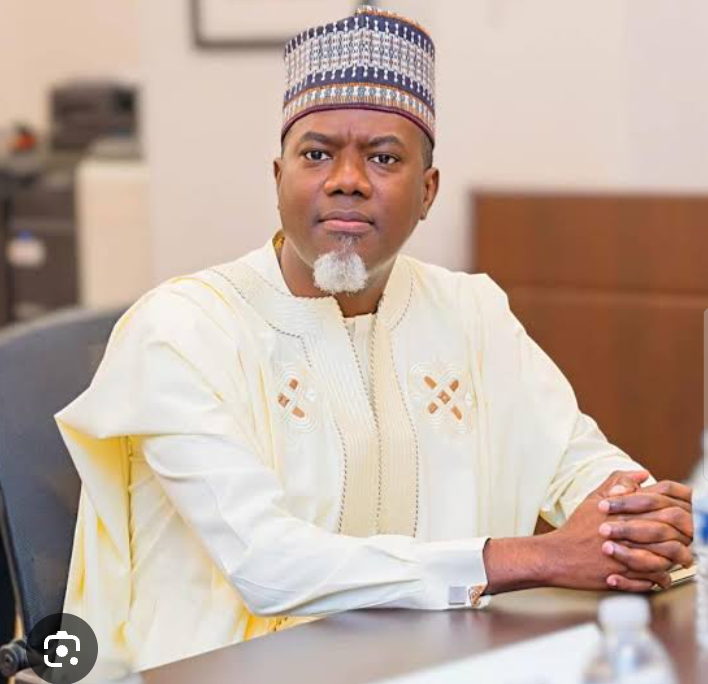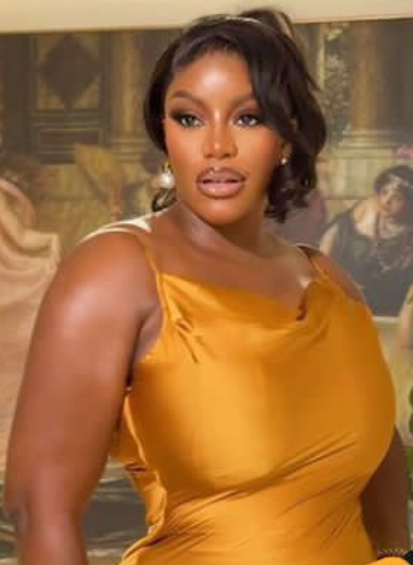
“Don’t Marry Your Agemate”: Reno Omokri Sparks Heated Debate With Controversial Take on Ideal Age Gap in Marriage

Reno Omokri, former presidential aide, author, and one of Nigeria’s most vocal social commentators, has once again stirred public reaction with his latest opinion on marriage and age differences. Taking to his social media platform, Omokri made a bold declaration: the ideal age gap between a man and his wife should be ten to fifteen years. Anything less, he argues, especially marrying an agemate or older woman, is not only biologically unwise but also culturally dangerous for African men who want to live long and avoid what he calls the “bodily consequences” of adopting Western ideals.
In his now viral post, Omokri referenced the biblical creation story to support his claim, pointing to Adam and Eve as the original blueprint for age-appropriate marital unions. “God created Adam. And Adam was already well settled and established in age at the Garden of Eden before God created Eve for him,” he wrote. “They were not age mates or even in the same age bracket. At all!” His post, dripping with scriptural allusion and loaded with controversial biological arguments, quickly ignited fiery reactions across social media platforms.
Omokri argues that marriage is far more than love or emotional compatibility. “As a man, you are also a biological being with bodily needs,” he said, before launching into a physiological comparison between male and female reproductive aging. According to him, while women reach menopause typically in their forties, most men remain sexually active into their nineties. “Except you are a breasted hermaphrodite Ruffian who works at Arise,” he added, throwing a not-so-subtle jab that has sparked both laughter and outrage online.
The central premise of his message revolves around the fear of sexual incompatibility and its potential health implications. Omokri raises a question that has since drawn ridicule and rebuke: “What will you do then? Become celibate and risk prostate cancer?” He claims men should think long-term and anticipate the biological trajectory of their marriage, warning against blindly adopting Western marital norms. “These are the things you should consider before taking a spouse because there are bodily consequences to adopting a wholly Western way of life,” he insisted.
While Omokri’s views are not entirely new—he has long held and shared conservative opinions about relationships and gender roles—this latest assertion seems to have touched a particularly sensitive nerve. Many critics are accusing him of promoting misogyny disguised as tradition and science. “It’s always the men who talk about what women should do, when they themselves can barely manage emotional maturity at any age,” one user posted in response. “Marriage is about partnership, not preservation of your libido,” another wrote.
Yet, despite the backlash, a significant number of followers have echoed his sentiments, arguing that his point has cultural and even statistical merit. Several pointed to studies that suggest men who marry younger women do, in some cases, live longer and remain more active. “He’s saying what a lot of people are thinking but are afraid to say,” a supporter commented. “Our fathers married younger women and their marriages lasted. This new generation marries their age mates and divorces within three years.”
Omokri further fueled the discussion by suggesting that men who marry older women or even their age mates are playing a dangerous game with both their health and happiness. “To wed your senior in age is to play Russian Roulette!” he warned. He even referenced the British royal family to underscore his point: “Queen Camilla is older than King Charles III. I do not want to say more out of deep respect for the British Royal Family.”
That comment, though somewhat veiled, has sparked international curiosity as well. Some royal watchers were quick to note the implied shade, questioning what Omokri hoped to achieve by dragging the British monarchy into a Nigerian debate about age gaps in marriage. Others, however, appreciated the subtlety of the reference and its underlying message that such unions are often rare and socially scrutinized.
What is perhaps most interesting about Omokri’s post is the way it blends religious narrative, biological argument, cultural commentary, and statistical suggestion—all wrapped in a tone that is part sermon, part warning. But in doing so, he’s also revived age-old debates around the role of women in marriage, the pressure placed on men to remain virile, and the persistent idea that a woman's worth is tied to her youth and reproductive capacity.
Feminists and relationship experts have stepped in to push back. They argue that Omokri’s statement reinforces harmful stereotypes and unfairly puts the burden of a man's longevity or sexual fulfillment on a woman's age. “This is textbook patriarchy,” one relationship coach wrote. “Women are more than wombs and washers of men's feet in their old age. Love, communication, shared goals, and emotional intelligence matter more in modern marriages than how many years younger the woman is.”
But whether you see Omokri’s comments as factual, farcical, or flat-out offensive, one thing is clear: he has once again succeeded in making headlines and commanding attention. His post has garnered thousands of comments, shares, and think pieces, with everyone from academics to armchair analysts weighing in. And true to form, Omokri remains unapologetic and firm in his stance, even encouraging people to “fact-check” him.
In a society where marital expectations are already heavily gendered, where women are often expected to submit while men lead, and where tradition still holds a powerful grip on personal choices, Omokri’s latest advice lands in a gray area between cultural preservation and regressive thinking. Whether his followers take it as gospel or disregard it as outdated, it’s clear that the conversation he started isn’t going away anytime soon.
As the internet continues to debate whether a decade-long age gap is the secret to marital bliss or just another excuse for control, one thing is certain: when it comes to relationships, there is no one-size-fits-all. But in the world of Reno Omokri, the gap might just be wide enough to keep love alive—and prostate cancer, apparently, at bay.


